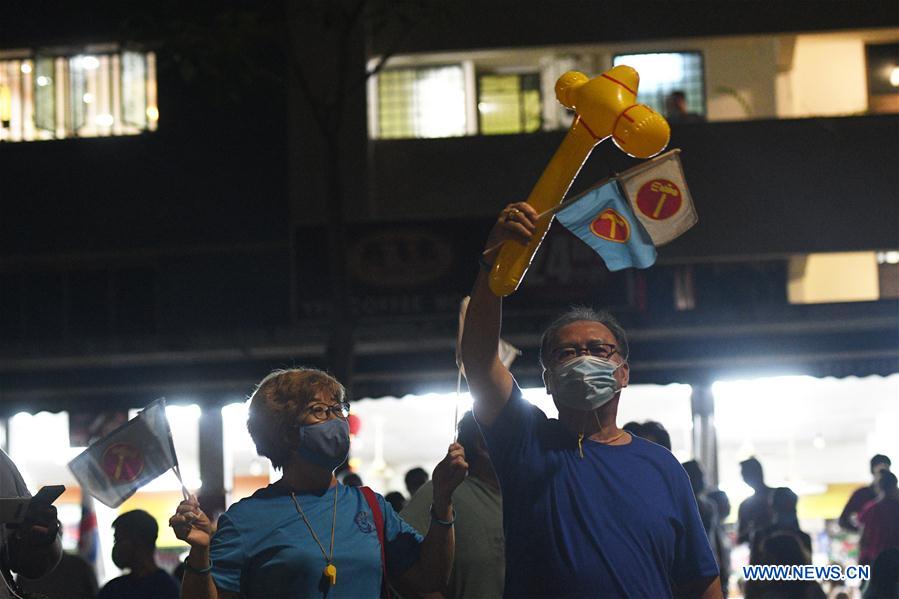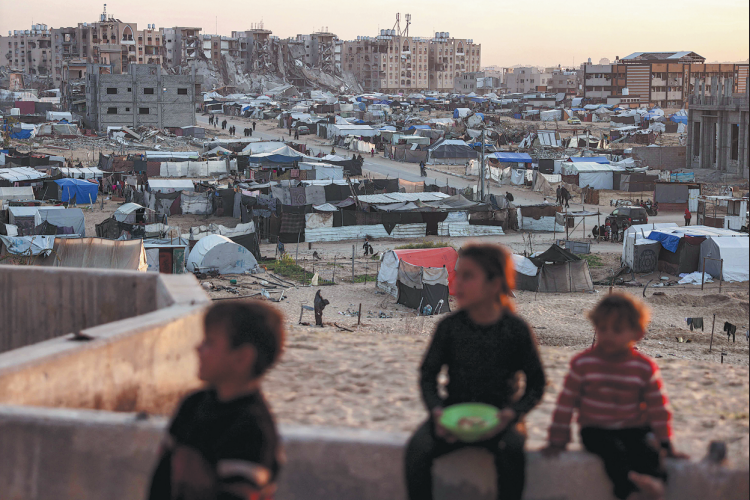Singapore PAP wins, but vote share falls
By PRIME SARMIENTO | China Daily | Updated: 2020-07-11 09:52

The victory of the ruling People's Action Party, or PAP, in Singapore's general elections has given it a fresh mandate, but the strong performance of opposition parties demonstrates a new generation of voters' desire for diverse and alternative voices in the parliament, analysts say.
In the elections on Friday, the first polls in Southeast Asia since the COVID-19 pandemic broke out, a record 11 parties contested 93 seats. The PAP won the vote and captured 83 seats. However, analysts said this was a lackluster performance for a party that has ruled the city-state for 55 years.
In contrast, the Workers' Party doubled its representation in parliament, winning 10 seats.
The Progress Singapore Party, or PSP, which is supported by Lee Hsien Yang, younger brother of Prime Minister Lee Hsien Loong, failed to win any seats. But the party, formed only last year, proved its mettle, giving the PAP tough competition in one of the ruling party's bailiwicks: West Coast's Group Representation Constituency, or GRC. The PSP won 48.31 percent of the vote against the PAP's 51.69 percent.
A GRC is an electoral division, where instead of an individual candidate, a team comprising of three to five candidates compete for a seat in the parliament.
Eugene Tan Kheng Boon, associate professor of law at the Singapore Management University, called the elections a watershed for Singapore, noting that this may mark "the start of the steady evolution of Singapore from a one-party dominant system to a two-party or a multiparty system".
"It is a clear expression of a vote for change."
Tan said the PAP's vote share dropped by more than 8 percentage points from the 69.9 percent it had in the last elections, in 2015.One of the voters' "nuanced messages" to the PAP is to recognize "the importance of a more diverse and competitive political landscape".
The election results had shown that the electorate of more than 2.5 million "have internalized the importance of good governance and are prepared to support a credible opposition for the needed system of checks and balances", he said.
More inclusive system
A growing number of Singaporeans want "a more inclusive and representative system", Bridget Welsh, honorary research fellow with the University of Nottingham Malaysia's Asia Research Institute said.
The Singapore economy may contract by 5.8 percent this year owing to the pandemic, and Welsh said this has created public uncertainty.
But she remains optimistic about the city-state's prospects, noting that the election results show that Singaporeans "believe more alternative voices will help to overcome these obstacles".
Prime Minister Lee said in a postelection press briefing that "this was not a feel-good election", and was held as Singaporeans "are facing real problems, and expect more rough weather to come". And while PAP's share of the popular vote was not as high as he had hoped for, Lee said the election results showed that there is broad-based support for the ruling party.
The head of the Workers' Party, Pritam Singh, said he was grateful for and humbled by voters' support for his party. But there is still a lot of work to do, he said.
Bilveer Singh, associate professor at the Department of Political Science of the National University of Singapore, said "the younger generation of voters made the difference" in the elections.
























